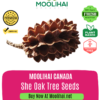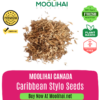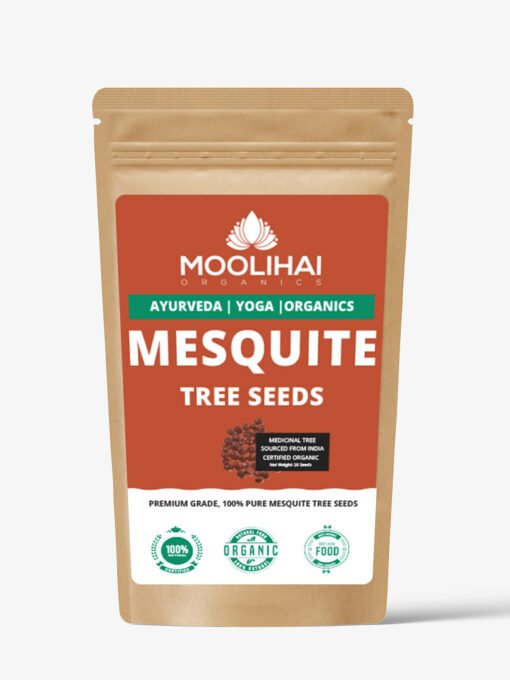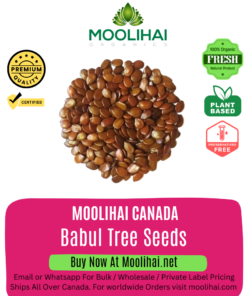-
×
 Dried Matura Tea Tree seeds / Aavarai Vithai
2 × $7.50
Dried Matura Tea Tree seeds / Aavarai Vithai
2 × $7.50 -
×
 Wild Carrot Seed
1 × $22.50
Wild Carrot Seed
1 × $22.50 -
×
 Spanish Cherry Seeds / Magizham Vithai
1 × $13.00
Spanish Cherry Seeds / Magizham Vithai
1 × $13.00
Babul Tree Seeds (Acacia nilotica)
$1.30
Quantity: 20 Seeds
Origin: India
Out of stock
Category: Tree Seeds
Babul Tree Seeds (Acacia nilotica) – Nature’s Multipurpose Wonder
Herbolaya presents premium Babul Tree Seeds, scientifically known as Acacia nilotica, a versatile and invaluable tree species revered for its ecological, economic, and cultural significance. Whether you are a gardener, farmer, or herbal enthusiast, growing the Babul tree offers a wealth of benefits, from soil enrichment to sustainable fodder.
Botanical Profile and Growth Insights
Acacia nilotica, commonly called Babul, is a hardy, fast-growing leguminous tree native to the Indian subcontinent and parts of Africa. It thrives in tropical and subtropical climates and is widely used for land reclamation, afforestation, and agroforestry.
-
Scientific Name: Acacia nilotica
-
Common Names: Babul (India), Kikar, Babool, Egyptian Thorn, Prickly Acacia
-
Seed Germination: High germination rate of 80-90%
-
Germination Period: Between 7 to 30 days with proper pre-treatment
-
Pre-treatment: Soak seeds in cold water for 48 hours, or hot water treatment at 80°C, or moist cow dung heap for 2-3 days to break seed dormancy
Multifaceted Uses and Environmental Benefits
Babul is more than just a tree; it is an ecological powerhouse:
-
Soil Enrichment: As a nitrogen-fixing legume, it improves soil fertility, aiding nearby crops like cereals and grasses to thrive.
-
Erosion Control & Land Reclamation: Used effectively in degraded and eroded lands such as the Chambal ravines in India, it stabilizes soil and prevents desertification.
-
Fuel & Timber: Provides high-quality fuelwood and durable timber used in construction and crafting.
-
Fodder & Forage: Its leaves, pods, and flowers serve as nutritious fodder for livestock including sheep, goats, and camels, especially in dry seasons.
-
Gum Arabic: The tree’s exudate gum, known as gum arabic, has been historically prized in medicine, dyes, and paints since ancient times.
-
Natural Hedge: Its thorny branches create effective protective hedges for farms and homesteads.
-
Cultural Use: Tender twigs are traditionally used as natural toothbrushes across the Indian subcontinent and parts of Africa, promoting oral hygiene.
Growing Instructions for Herbolaya Babul Seeds
Achieve optimal germination and seedling health by following these expert tips:
-
Pre-soak seeds using one of the recommended methods to break seed coat dormancy.
-
Sow treated seeds in well-drained soil or polythene bags at a depth of approximately 1.5 cm.
-
Maintain moderate moisture but avoid overwatering, especially after 2 months to prevent root rot and surface cracking.
-
Provide shade for young seedlings to protect them from direct harsh sunlight.
Regional Names and Global Cultivation
The Babul tree is widely known and cherished across diverse regions:
-
India & South Asia: Babul, Babool, Kikar — integral to traditional agroforestry and rural livelihoods.
-
Africa: Egyptian Thorn, used in both ecological restoration and traditional practices.
-
Global Audience: Valued by gardeners and environmentalists in the USA, Canada, UK, and other countries for its drought resilience and multiple uses.
Why Choose Herbolaya Babul Tree Seeds?
At Herbolaya, we prioritize authenticity and quality, offering you seeds with excellent germination potential backed by thorough cultivation guidance. Our commitment is to empower you to grow this multipurpose tree successfully—enhancing your land’s productivity, ecological balance, and traditional heritage.
Grow the Babul tree and harness the power of a truly multipurpose, sustainable species cherished for centuries.
| Weight | 0.1 kg |
|---|
Show only reviews in English (0)
Be the first to review “Babul Tree Seeds (Acacia nilotica)” Cancel reply
You must be logged in to post a review.
Related products
Tree Seeds
$6.00 – $56.50Price range: $6.00 through $56.50
This product has multiple variants. The options may be chosen on the product page
Tree Seeds
$11.50 – $106.50Price range: $11.50 through $106.50
This product has multiple variants. The options may be chosen on the product page
Sale!
Tree Seeds
$8.00 – $76.50Price range: $8.00 through $76.50
This product has multiple variants. The options may be chosen on the product page













Reviews
There are no reviews yet.